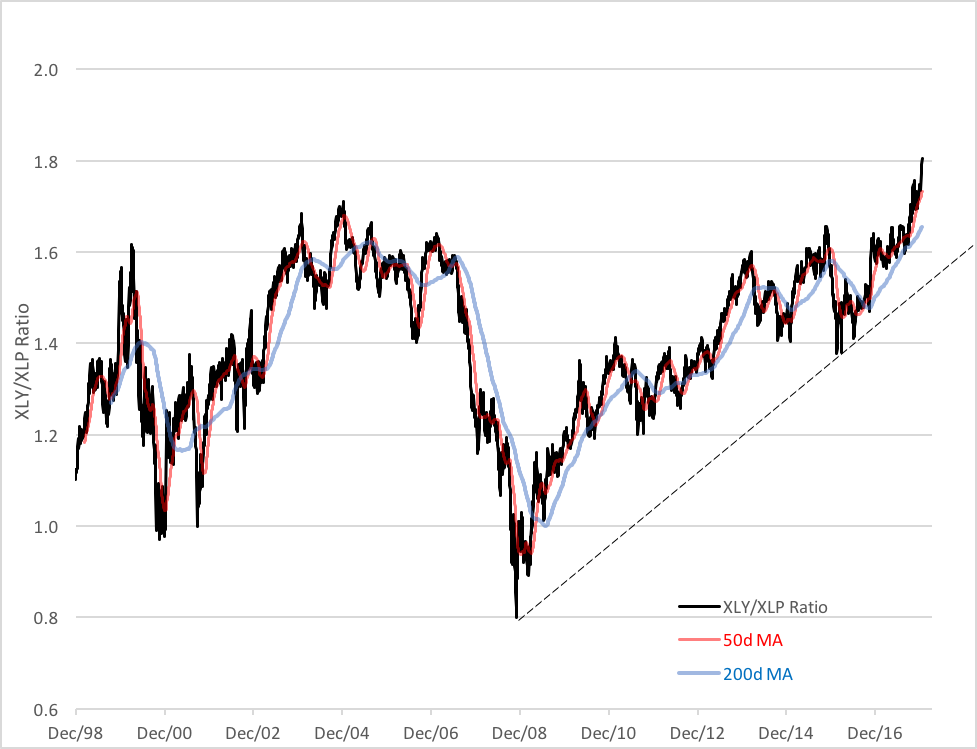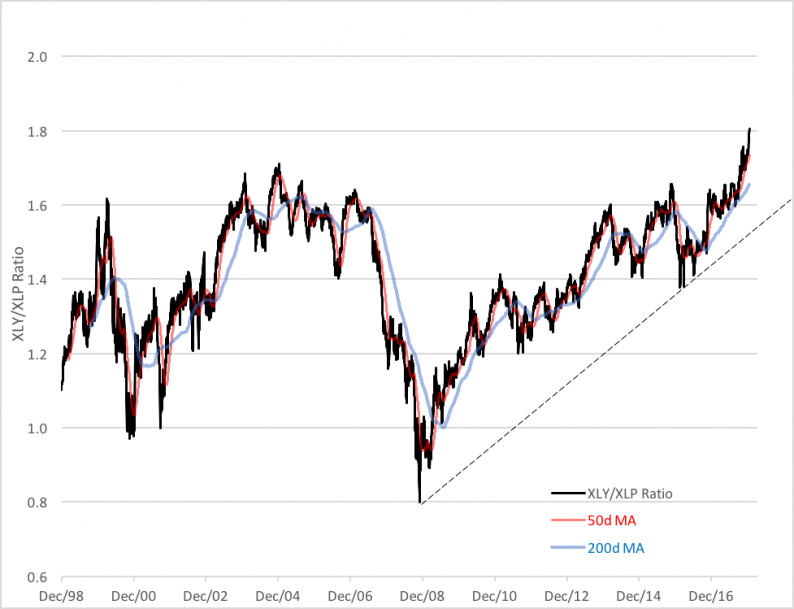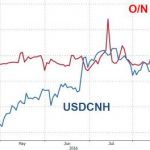More room on the upside for consumer confidence.
So, you’ve had more than a week to sweat out all those New Year’s spirits. It’s time, though, to break out the bubbles again to celebrate a key sentiment indicator reaching the century mark. No, the indicator’s not a hundred years old. It has just gained a hundred points since its nadir during the 2008 financial crisis.
What indicator, you ask? The ratio derived by dividing the price of the Consumer Discretionary Select Sector SPDR ETF (NYSE Arca: XLY) by that of the Consumer Staples Select Sector SPDR ETF (NYSE: XLP).
The ratio—let’s call it the Consumer Confidence Indicator—compares investors’ taste for companies providing leisure and durable goods versus those making and retailing food and household products. The 81 companies in the XLY portfolio manufacture or market things you “wanna” have while the 34 XLP firms provide things you “gotta” have.
XLY fares well vis-à-vis XLP when investors and consumers feel flush. XLP, on the other hand, outperforms XLY when punters are defensive. Good times favor a rising ratio. When the economy struggles, the ratio tends to shrink.
You can see the indicator’s track record in the chart below.

See the reason for celebration? Back in the depths of the 2008 slump, the indicator scraped bottom with a 0.80 ratio. But, on Wednesday, the ratio closed at 1.80, 100 basis points above the recession low.
The rise reflects evergrowing confidence in the economy, most recently turbocharged by the passage of the tax cut package. The question on investors’ minds is obvious: Is this trend sustainable or is investor exuberance becoming irrational?
In times like this, it’s good to recall an aphorism attributed to economist John Maynard Keynes: “The market can remain irrational longer than you can remain solvent.”
Irrational or not, it’s probably not a safe bet to fade this trend yet.













Leave A Comment